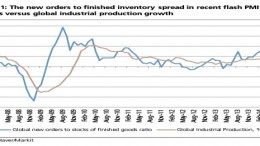Draghi is in trouble: credit still doesn’t flow in the periphery
MADRID | By Francisco López | The ECB President announced with fanfare last month a battery of measures to revive the credit in the EZ. The problem is that the open bar announced by Draghi won’t have an impact on loans until 2015 and, meanwhile, credit fall continues to accelerate in some peripheral countries, especially in Spain and Italy. There are those who believe that the latest data could force Mr Draghi to approve a direct debt purchase program before year’s end.




